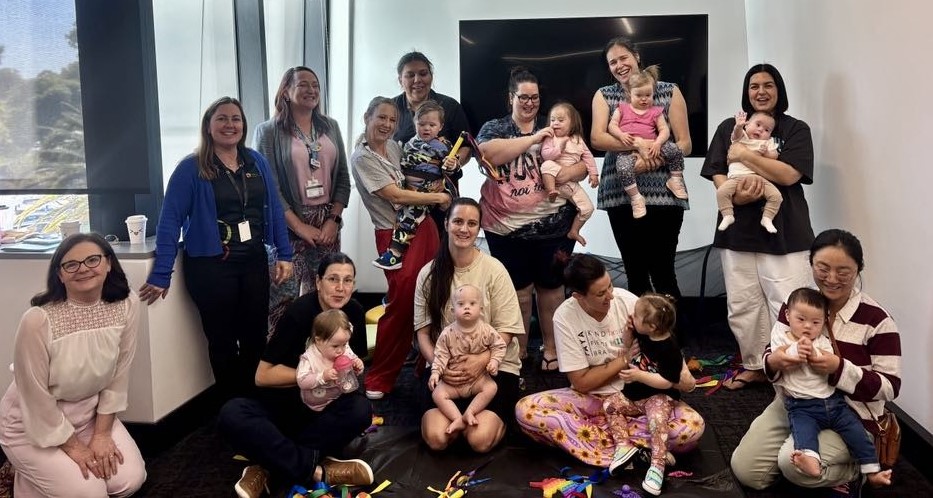
Researchers from the Wesfarmers Centre of Vaccines and Infectious Diseases, based at The Kids Research Institute Australia, are partnering with Down Syndrome WA to learn more about how respiratory syncytial virus, or RSV, affects children with increased medical vulnerability.
A common cause of runny noses and coughs, RSV is a highly contagious respiratory virus that can lead to severe bronchiolitis and pneumonia. RSV is the number one cause of hospitalisation in Australian children under five years of age, and children with existing health complexities are at increased risk of life-threatening complications.
To help learn the best way to protect high risk children against this potentially deadly virus, researchers from the Wesfarmers Centre’s Infectious Diseases Epidemiology team are teaming up with Down Syndrome WA to speak with families as part of their latest study.
Hannah Moore, Theme Head of Infectious Diseases and lead of the STAMP RSV program at the Wesfarmers Centre and Associate Professor at Curtin University, had the opportunity to speak to parents at a morning tea this week and share how their valuable input will shape the future of RSV immunisations.
“We are looking forward to connecting with families through Down Syndrome WA – this will provide great insight into the knowledge and awareness of RSV and allows us to understand the needs of parents so we can develop appropriate information materials that can help guide immunisations decisions,” A/Prof Moore said.
Cassandra Hughes, Chief Executive Officer of Down Syndrome WA, is pleased to support this important research into RSV, particularly given its significant impact on the health and wellbeing of young children.
“This research aligns strongly with our commitment to advancing evidence-based approaches that can improve health outcomes and inform early interventions for children with increased medical vulnerability,” Cassandra said.
“We commend the research team’s focus on RSV and the potential for this work to contribute valuable insights into prevention and care strategies for at-risk populations.
“This research into RSV is critical to increase the understanding of the illness and will develop information and important resources about RSV for parents and care givers and will support informed choices about RSV immunisation.”
To learn more about the STAMP RSV research program or to get involved, email STAMP_RSV@thekids.org.au
